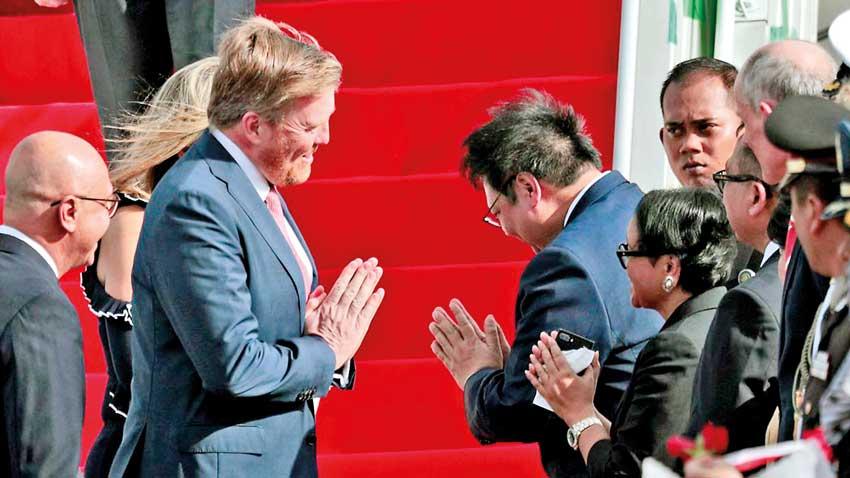19 Mar 2020 - {{hitsCtrl.values.hits}}

 In a sign of times to come, shaking hands, kissing cheeks, hugging and even high fives will be a thing of the past – thanks to the coronavirus.
In a sign of times to come, shaking hands, kissing cheeks, hugging and even high fives will be a thing of the past – thanks to the coronavirus.
The virus, abbreviated Covid-19, primarily spreads through contact with infected persons and data compiled in the US shows that 80 percent of all infections are transmitted via hands.
In 2013, trained observers discretely watched 3,700 people who visited the washroom. The study revealed that only 5 percent followed the rules of ‘properly’ washing hands. About 25 percent washed their hands without using soap – a kind of ‘splash and dash’ run, whilst the majority did not wash their hands at all.
Apart from not washing hands, the other common shortcoming was … time. Almost everyone seemed eager to ‘get in and get out’ of the washroom as quickly as possible. Mind you, this was eight years ago and it cannot have gotten any better today.
In the final analysis, it’s the hands. The hands are the connecting piece. You can control more or less what you touch but you can’t control what others touch.
For instance, consider the handshake – you decide whom you shake hands with. But you have no idea whether the ‘other’ hands you shook … were washed after using the toilet, were coughed into or were used to pick the nose?
On average, a person will shake 15,000 hands in his or her lifetime and if you live in the Middle East – make that 30,000 ‘nose to nose’ greeting. No small wonder then, why infections such as influenza, MERS, SARS and now Covid-19, spread wide so rapidly.
Outbreaks such as Covid-19 trigger de-globalisation (diminishing integration between certain nation states around the world) and disrupt supply chains. For tourism, tourists are a vital portion of the supply chain. The coronavirus outbreak is a shock to mobility and we can all see the global havoc it has wrought.
Everything is changing and there will be a lot of social awkwardness as a result. More recently, Germany’s interior minister Horst Seehofer rebuffed Chancellor Angela Merkel’s attempt to shake hands with him, smiling and firmly keeping both hands to himself. No one wants to shake hands any more … not even ones that belong to royalty.
So, is it time, especially for those of us in Asia, to replace the handshake, a ritual that came from Greece, way back in the fifth century and instead, ‘revive’ the traditional manner of greeting each other?
Depending on where one lives, it could be ‘Ayubowan’, ‘Namaste’, ‘Sawasdee khrap’ or ‘kha’ or similar … each accompanied with palms clasped together in a prayer like gesture. Even the Japanese-style bow or simple wave of the hand may suffice.
For now, let’s keep the handshake firmly on-hold … I mean, let go of it and instead greet each other ‘Ayubowan’.
(Shafeek Wahab, Editor of ‘Hospitality Sri Lanka’, is a consultant, trainer and an ex-hotelier)
16 Nov 2024 1 hours ago
16 Nov 2024 2 hours ago
16 Nov 2024 2 hours ago
16 Nov 2024 3 hours ago
16 Nov 2024 4 hours ago